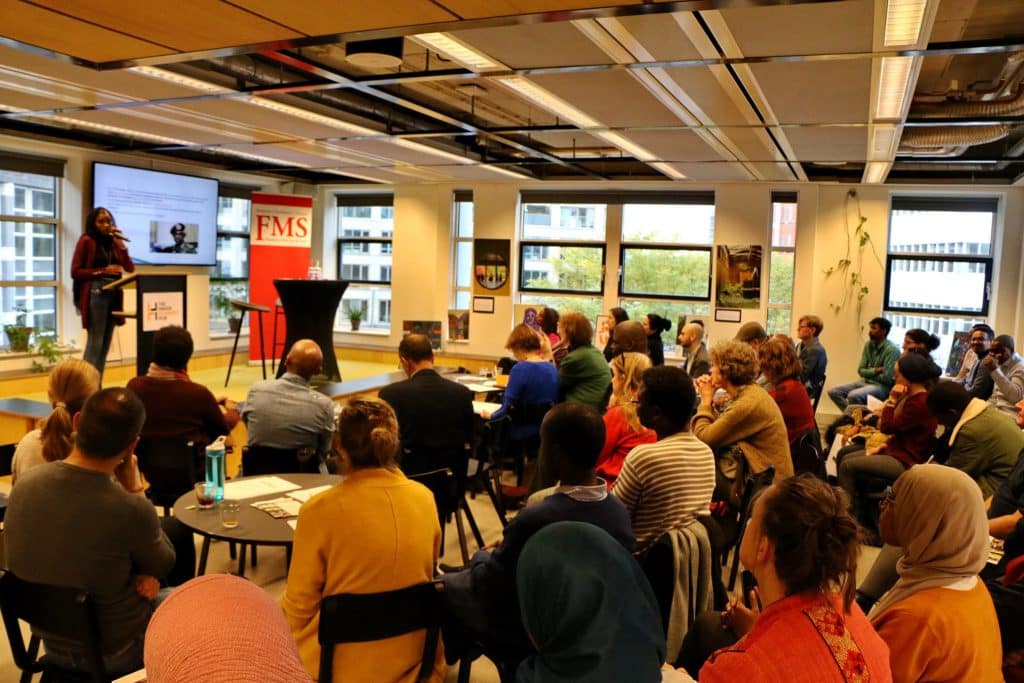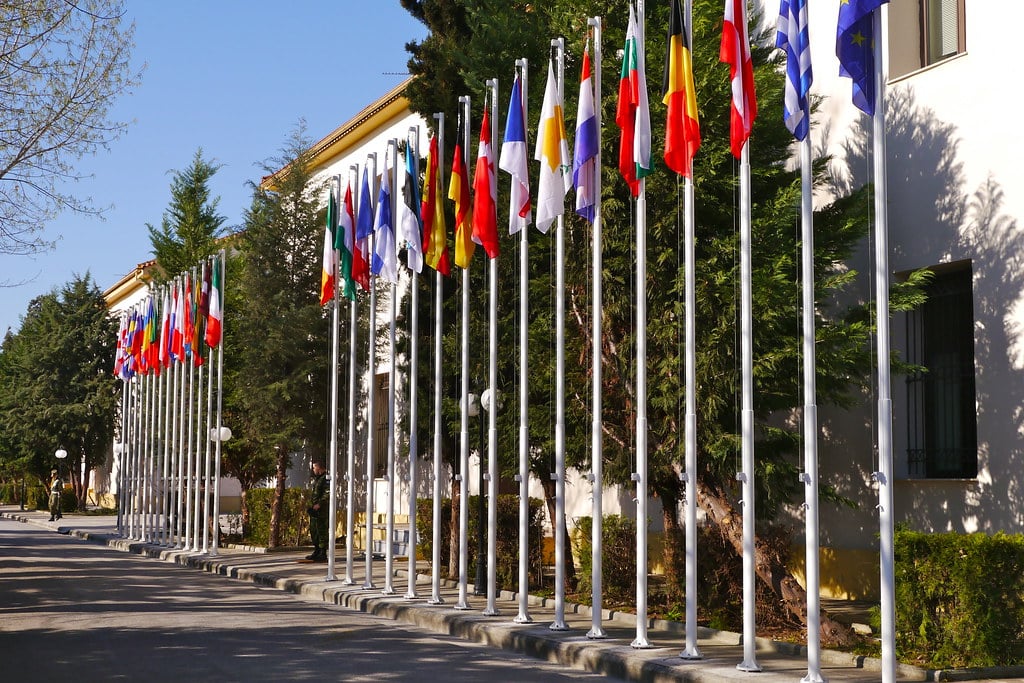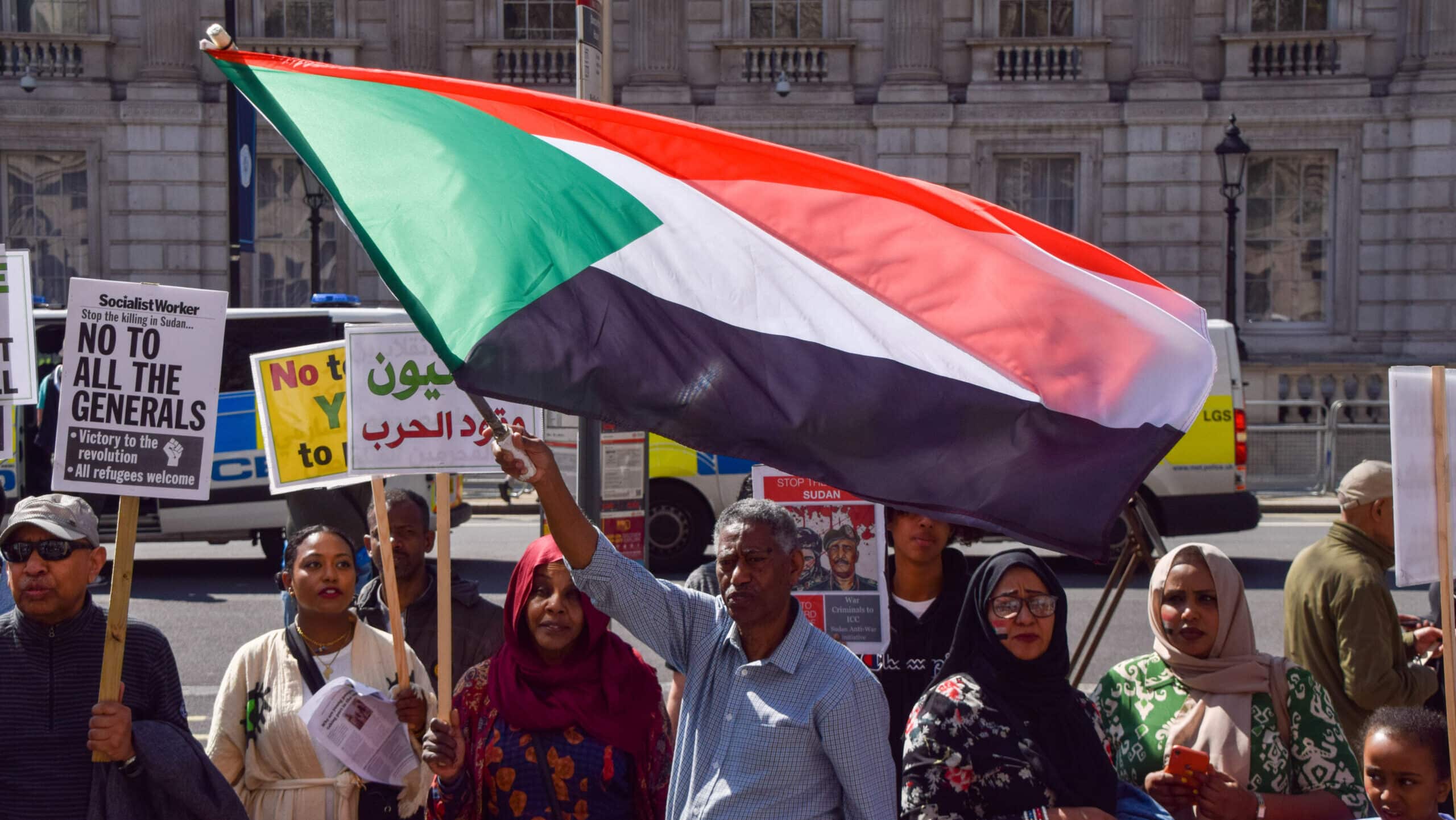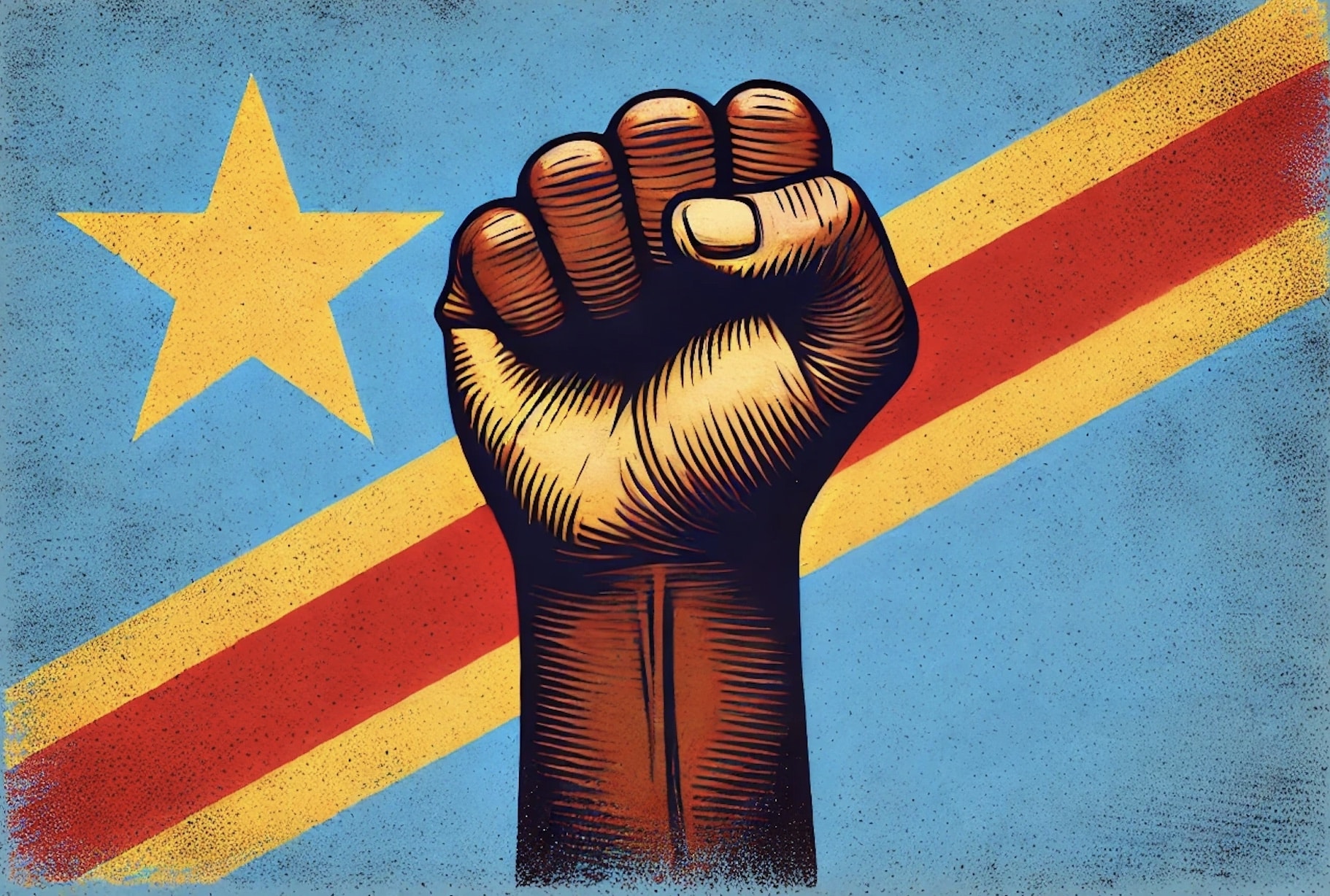Last Saturday, 23 November, we organised our Political Cafe in The Hague Humanity Hub about the new power-sharing agreement in Sudan. In cooperation with Africa in Motion and CEM, the Sudanese association in the Netherlands, and hosted by Milka Yemane, it was an interesting and informative afternoon. In addition to the political conversations, the audience also got a glimpse into the Sudanese culture through, among other things, a small exhibition of Sudanese artist Ahmed Magzoub and live music by the band Kush.
Current situation
Political activist Nusiba Abdalla kicked off the afternoon with an outline of the situation in Sudan. In April this year, after 30-year rule, President Omar al-Bashir and his government were replaced by the military. This followed after months of vast protests, which started over a tax on bread and fuel subsidies issued in December 2018. Sabna Ali, PhD researcher, elaborated on the economic factors that are at the root of the current crisis. Under Al-Bashir, she stated, the government was involved in ‘economic diplomacy’ interacting with countries only based on the economic benefits they could offer.
Al-Bashir used the divide and conquer tactic to hold on to power, which in turn led to the major protests in December. After the military overthrew Al-Bashir in April, the demonstrators demanded a rapid transition to a civilian government. However, with support from the Rapid Response Forces and Janjaweed, the military remained in power and was responsible for the Khartoum massacre of June 2019. After those escalations, in which more than a hundred civilians were killed, the two sides reached a power-sharing agreement.
Women at the heart of the Sudanese revolution
Women played a very important role during the Sudanese revolution. This can be seen in the iconic photo of Alaa, in which she speaks to demonstrators while standing on a car. The white trobe Alaa Salah wears refers to Anglo Egyptian elite. It signals that the women are protected by their families and it therefore became the national dress according to Karin Willemse, Anthropologist from the Erasmus School.
The important role of women in the revolution is not new, stated Hala el-Bushari, founder of CEM. Sudan had multiple queens who ruled the country and even participated in battles. In 1952, the first women’s trade union (Sudanese Women’s Union, SWU) was established. After pressure from the SWU, women received active voting rights and were allowed to register as candidate. Due to the socialist policy of President Jaafar Muhammad an-Nimeiry (1969-1985) women in rural areas have a network of educated women. When Al-Bashir came to power, he banned the SWU. Later, he also applied a series of oppressive laws to subjugate women. It is therefore not surprising that 70% of the demonstrators in the revolution were women.
Despite the great efforts of women, there are only four women in the new government. However, according to Hala, we must remain optimistic and have faith in our women. We cannot expect that women will suddenly gain a great deal of influence; gradual change is necessary. This gradual change is also taking place, according to Nusiba. Many government meetings took place in the evening, which meant in practice that women were excluded in advance. This has changed, and many women are more and more aware of their rights. “Sudanese women are qualified to access leadership positions. When they work together, the future of women looks positive,” added Nusiba during the debate.
Future of Sudan, what needs to be done?
The future of Sudan is still unclear. Al-Bashir destroyed the party structure which makes it hard to move on. According to Mohammed Elgizoly Adam, specialised in peace, justice, human rights and laws, Sudan’s current government lacks a clear vision and information about the transition. “Sudan is in need of one leader with a clear vision”. Moreover he stated, “Legal reform is needed to establish a rule of law”. In this context, it is important to facilitate the extraordinary justice process. Otherwise justice cannot be realised with the wide scale of human rights violations and large scale of perpetrators. Karin also expressed her concerns about the influence of religious parties in the (current) political system of Sudan. Hereby she referred to coups in Tunisia, where religious groups hijacked the coups.
Mohammed Abdulhamid Abdulrahman, Sudanese editor, doesn’t consider this new power-sharing agreement as ideal, but it was the only option which was expected to succeed. Karin was particularly positive about the future of Sudan. “Democracy is a learning process. Trust each other and have hope for a better future”. According to her, the solution lies in building national and international connections. Sabna agreed with this and emphasised the need for regional and international support. And, she added, it is crucial to involve NGOs in the peace process.
Conversation continues
After the panel on the future of Sudan, the conversation continued while enjoying some Sudanese snacks and live music from band Kush. We hope to continue this conversation at the Afrikadag on Saturday the 4th of April 2020. Ticket sale will start late February/early March via www.afrikadag.nl.
Photos: Mohamed Abdel Wahab





